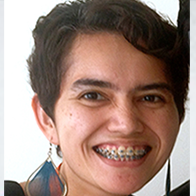I had the opportunity to spend some time with Malaysians living in the US during my time in Washington DC.
 Most of them call America home, are permanent residents and have been here for many, many years.
Most of them call America home, are permanent residents and have been here for many, many years.
Despite the distance, all of them still consider themselves Malaysians and keep a close eye on the developments in the country.
As with the nature of humans, when placed in any new environment, we tend to flock together for a commonality that is a prescribed “safety net”.
Anything that is familiar is considered safe, and it is not surprising to see that Malaysians would band together overseas, whether in a tour group for short vacations, as students in universities overseas, or as migrants in a new country.
Such interactions, however, only turn to friendships if one finds fellow countrymen who share similar ideologies or are able to tolerate each others’ differences and eccentricities.
Coming from the same country can only go as far into maintaining a friendship.
This can be seen when Malaysians form “kampung” or communities overseas.
Forming such kampungs not only provides the necessary occasional nasi lemak and local delicacies during celebrations, but also a safety net for the community should there are cases of ethnic or religious-based violence or natural disasters.
After all, overseas, we are all “pendatang”.
Being away from Malaysia should ideally be an opportunity to have an international worldview on one’s field of work and life, improving one’s ability to converse in the current language of global trade and the chance to view Malaysia from the outside, removed from the internal madness.
We also see Malaysians who live overseas, but still restrict themselves within the cocoons of a localized mentality.
We have Malaysians who spend years overseas but unable to converse proficiently in languages other than Bahasa Malaysia.
Further, there are Malaysians who either choose to be a recluse from fellow Malaysians, or in some cases ostracised and excluded from such “kampungs” because the majority deems them “not enough of a Malaysian”.
As someone who has personally experienced the latter, this experience removed the rose-tinted glasses from my eyes to the reality of who Malaysians really are.
We are all racist, elitist, and have an immature, infantalised mentality.
We all need to be kept happy with the many distractions provided by malls, social media rants and the latest opportunity to discriminate against anyone who do not think or act like we do.
We love to judge. Our blind pride and supposed patriotism silence us from exposing anything that is seemingly negative about the country overseas.
From my conversations with the Malaysians here, I noticed that they are as much of a Malaysian as I am despite them having lived away from the country for as long as they did.
They form their own kampungs, but one that discuss Malaysian issues and efforts on how to resolve these issues from where they are and within their personal capacities.
Many voiced their concerns of the seemingly Arabicised culture they see creeping within the local community.
Instead of assimilation and acceptance of the mixed culture pot that we originally are, most Malaysians seem to prefer adopting an Arabic culture instead.
Further, we tend to retreat more deeply into our ethnic cocoons within the country.
For some, it seems that having left Malaysia allowed them to keep their Malaysian identity.
As a relatively young Malaysian, I can’t help but feel sad upon hearing this.
These conversations glorifies a Malaysia in the past that is liberal and secular, with a promise of greatness and having produced individuals who are internationally recognised for their work and able to carve careers at global organisations.
To these overseas Malaysians, we “local” Malaysians seem to have lost our own identity. What does it say of the rest of us, when some of us feel and are able to be more Malaysian away from our country?
I think the real question to ask ourselves is what kind of country do we want to live in.
Do we really want to live in a country where even shopping trolleys are segregated by religious beliefs?
Where our fear of dogs justifies our need to abuse and kill animals?
Where it is “haram” to be eating and drinking using the same cutlery and together with non-Muslims, but corruption and unaccounted spending is “halal”?
In our intent to seemingly purify ourselves, we have stigmatised our fellow Malaysians and exposed us for who we are.
We can argue about whose country this is and whether for those who do not feel happy to be in the country to leave.
Yet, we must be ready to accept the consequences should that happen.
Let there not be the need to form many more kampungs overseas.
Instead, let us build a country that would attract and retain talented individuals, empower those who are currently marginalised due to poverty and lack of access to education regardless of ethnicity and religious beliefs, and together form that Malaysian identity we so dearly desire. – November 11, 2015.
* This is the personal opinion of the writer or publication and does not necessarily represent the views of The Malaysian Insider.


Comments
Please refrain from nicknames or comments of a racist, sexist, personal, vulgar or derogatory nature, or you may risk being blocked from commenting in our website. We encourage commenters to use their real names as their username. As comments are moderated, they may not appear immediately or even on the same day you posted them. We also reserve the right to delete off-topic comments